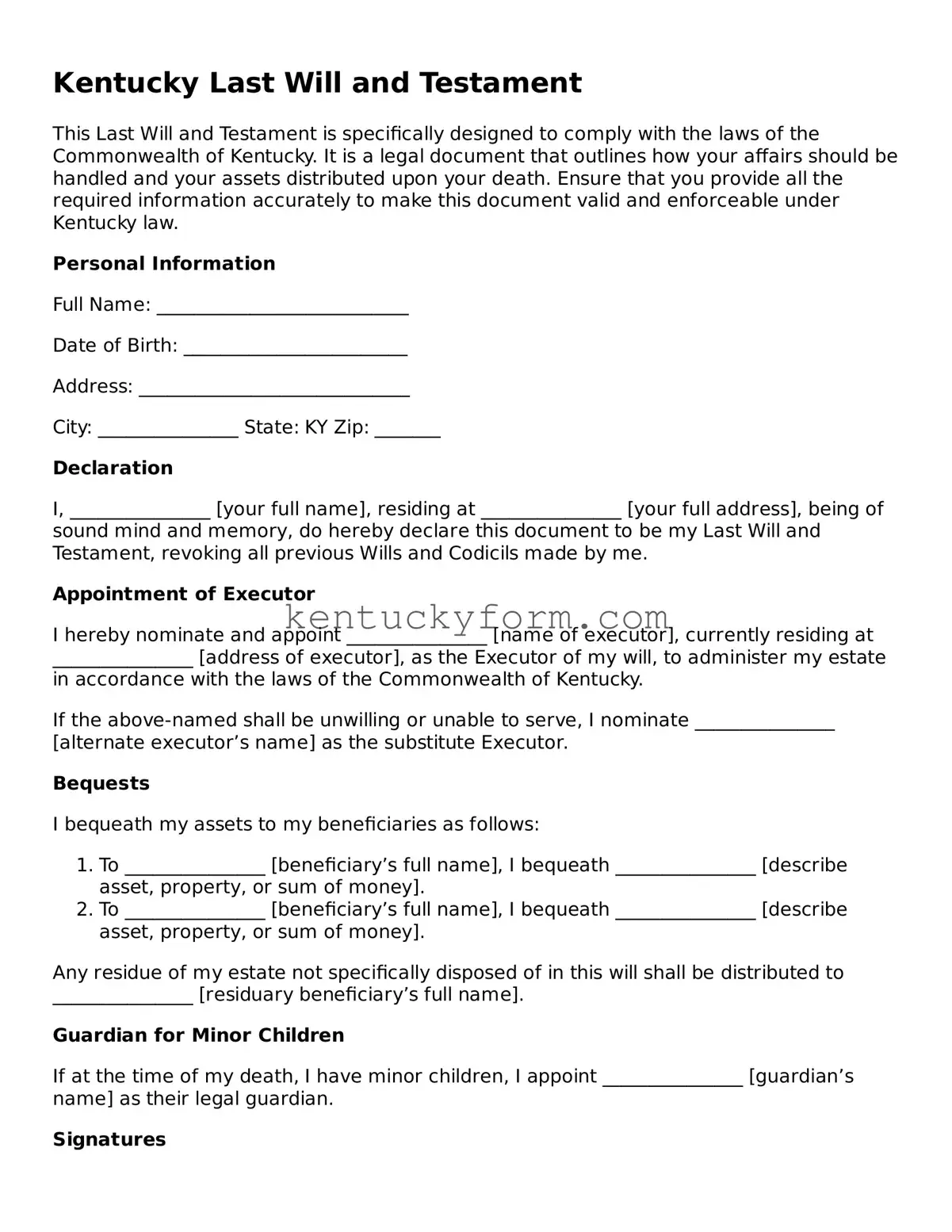Kentucky Last Will and Testament
This Last Will and Testament is specifically designed to comply with the laws of the Commonwealth of Kentucky. It is a legal document that outlines how your affairs should be handled and your assets distributed upon your death. Ensure that you provide all the required information accurately to make this document valid and enforceable under Kentucky law.
Personal Information
Full Name: ___________________________
Date of Birth: ________________________
Address: _____________________________
City: _______________ State: KY Zip: _______
Declaration
I, _______________ [your full name], residing at _______________ [your full address], being of sound mind and memory, do hereby declare this document to be my Last Will and Testament, revoking all previous Wills and Codicils made by me.
Appointment of Executor
I hereby nominate and appoint _______________ [name of executor], currently residing at _______________ [address of executor], as the Executor of my will, to administer my estate in accordance with the laws of the Commonwealth of Kentucky.
If the above-named shall be unwilling or unable to serve, I nominate _______________ [alternate executor’s name] as the substitute Executor.
Bequests
I bequeath my assets to my beneficiaries as follows:
- To _______________ [beneficiary’s full name], I bequeath _______________ [describe asset, property, or sum of money].
- To _______________ [beneficiary’s full name], I bequeath _______________ [describe asset, property, or sum of money].
Any residue of my estate not specifically disposed of in this will shall be distributed to _______________ [residuary beneficiary’s full name].
Guardian for Minor Children
If at the time of my death, I have minor children, I appoint _______________ [guardian’s name] as their legal guardian.
Signatures
This Will must be signed in the presence of two witnesses, who should not be beneficiaries of this Will. It is recommended that this Will also be notarized to strengthen its validity.
Date: _______________
Signature: ___________________________
Witness 1 Signature: ___________________________
Witness 2 Signature: ___________________________
Notary Acknowledgement (Optional but recommended)
This section is to be completed by a notary public.
State of Kentucky
County of _______________
On _______________ [date], before me, _______________ [notary's name], personally appeared _______________ [your name], proved to me on the basis of satisfactory evidence to be the person(s) whose name(s) is/are subscribed to the within instrument, and acknowledged that he/she/they executed the same in his/her/their authorized capacity(ies), and that by his/her/their signature(s) on the instrument, the person(s), or the entity upon behalf of which the person(s) acted, executed the instrument.
Witness my hand and official seal:
Signature of Notary: ___________________________
(Seal)

